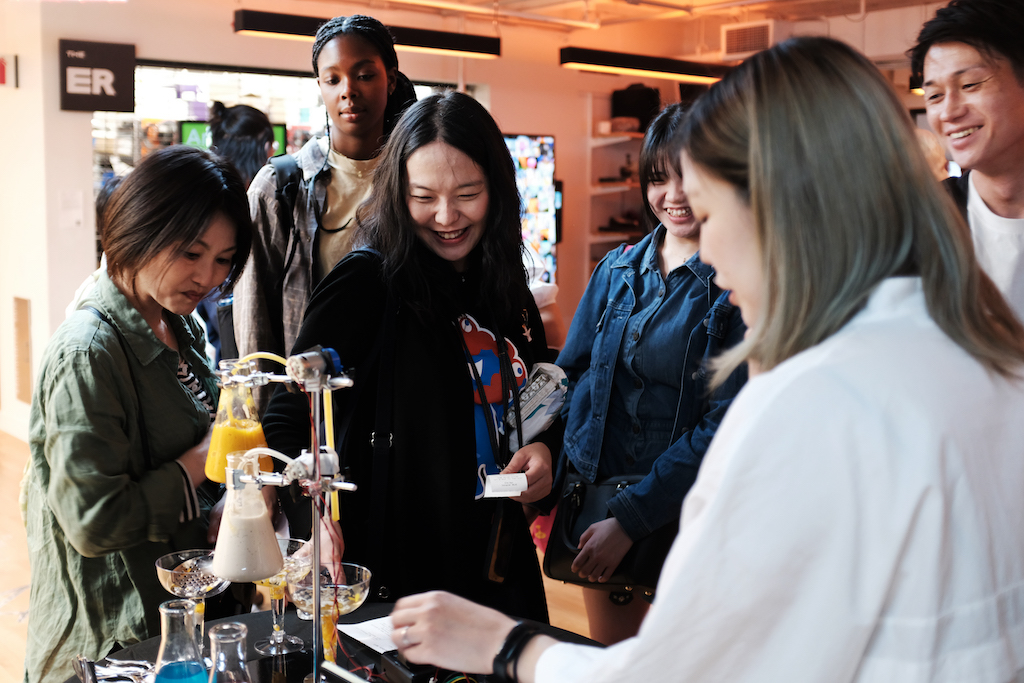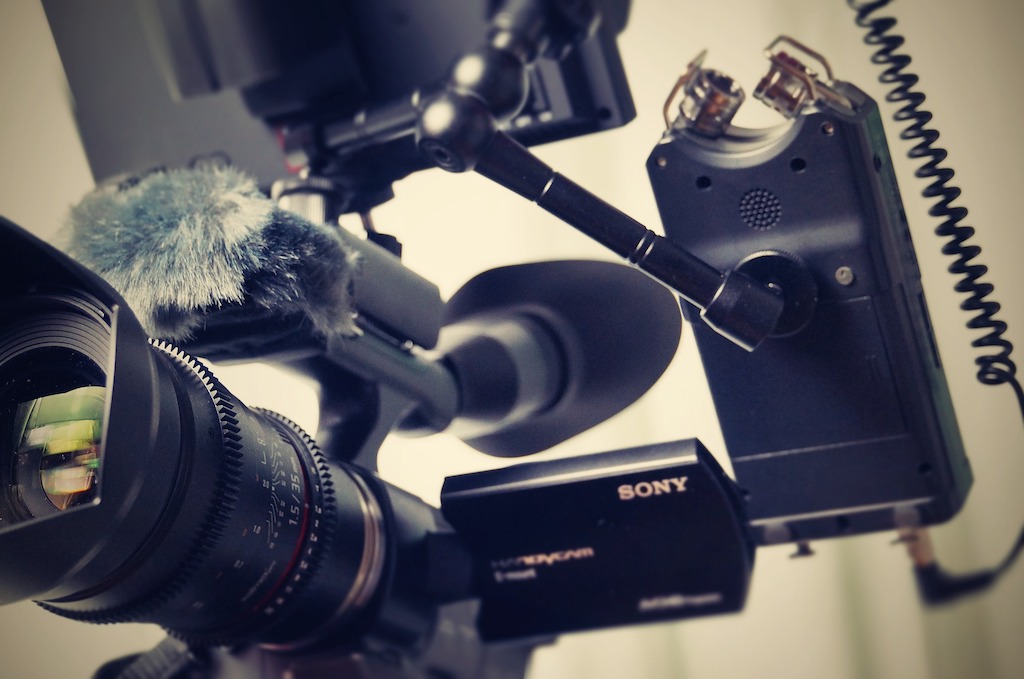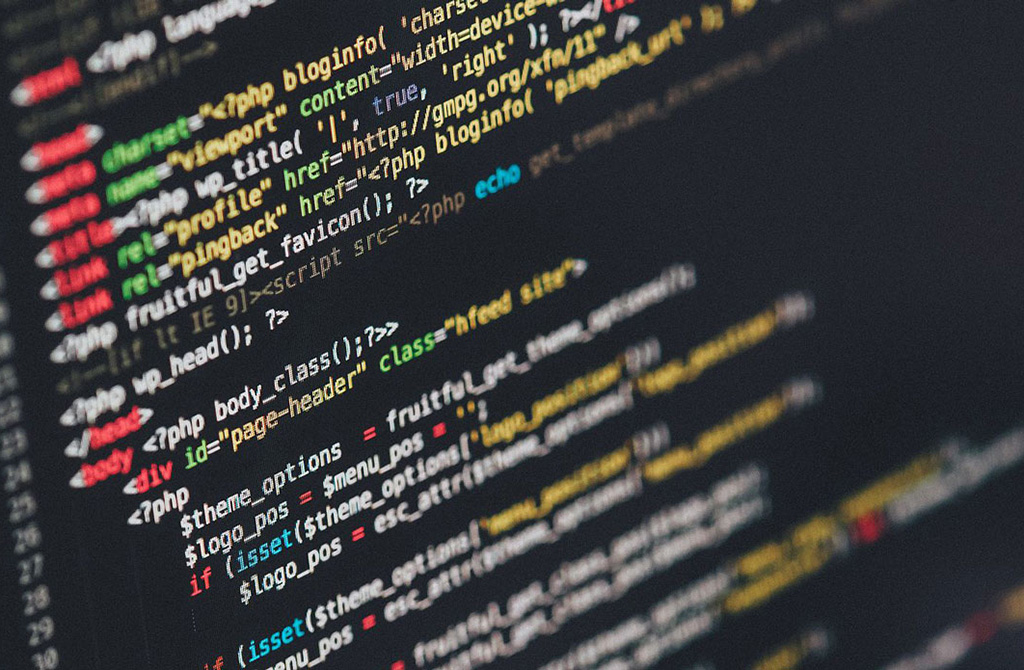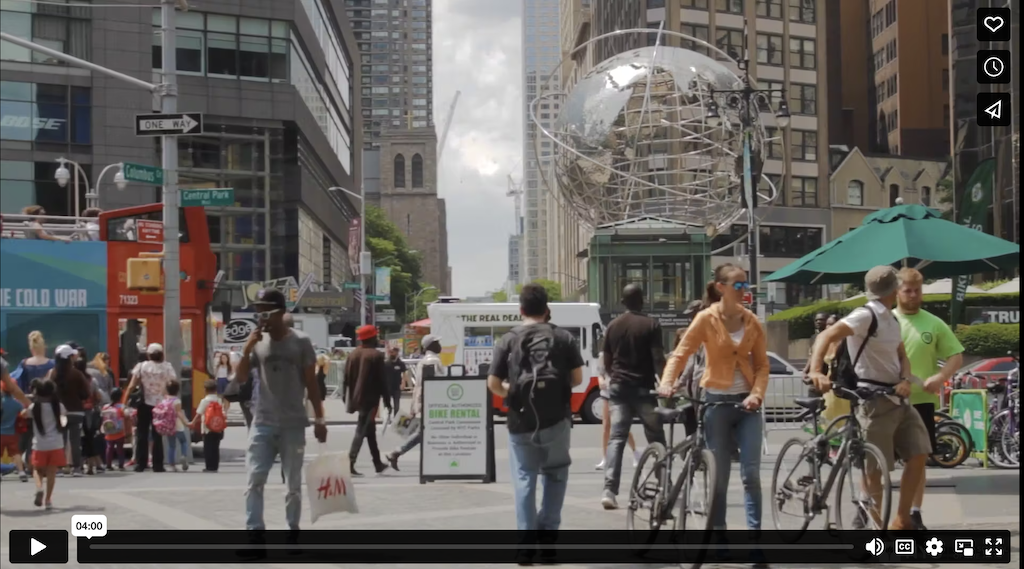Invent yourself at IMA!
The Interactive Media Arts (IMA) program starts from the proposition that computation — the ability to code, learn new software, manipulate data, and create physical + digital interactions — is an essential creative capability, and that students who master those capabilities will be well-placed to invent the future.
IMA offers a rigorous and exploratory course of study that teaches students fluency in many forms of digital interactivity. Students will learn to think about the relationship between digital tools, physical objects and environments, human interaction and technology’s impact on the world.
Program Overview
You will register for a full-time spring semester consisting of 12-18 credits. Your course load includes the two IMA foundation classes (Creative Computing and Communications Lab) and additional companion courses. Students will take the IMA foundation courses at the NYU campus in Brooklyn.
You will take the following two foundation courses that are required of all IMA students.
Access to intermediate-level courses is not available in the Spring at Tisch program. Visiting students can take intermediate-level courses in New York City during Summer at Tisch or through Tisch Study Abroad.
Students are responsible for getting courses taken through Spring at Tisch credited to their degree program at their home college or university.
IMPORTANT INFORMATION
Dates
Spring 2025
January 21 - May 6, 2025
Additional important dates are available on the Tisch Admissions Calendar.
ADMISSIONS
The spring 2025 application is closed.
The Spring at Tisch Interactive Media Arts track is open to full-time matriculated undergraduate sophomores, juniors, and seniors from other colleges and universities.
You must not be on academic or disciplinary probation.
*Students who are on a leave of absence at the time of their application must have a representative of their school (e.g. an academic advisor) state via e-mail to tisch.special.admissions@nyu.edu that they are presently on good academic and disciplinary standing with their school.
*Students taking a gap year in-between high school and college are not eligible.
Please review the full application requirements before starting your application.
Effective May 2023, NYU no longer requires COVID-19 vaccinations. However, staying up to date with COVID-19 vaccinations, including booster shots, remains strongly recommended for the health and safety of the student and the campus community—and students are welcome to wear masks anytime they choose. More information about COVID-19 protocols at NYU, including updates, is available on the NYU COVID-19 Information website.
TUITION AND FEES
Spring 2025
- Visiting Student Full-time Tuition, 12-18 units flat rate, per term: $31,398
Additional Fees Include:
- Estimated Media and Production Fee: $88 per course*
*Estimated based on 2023-2024 tuition rates
Please review the Tisch Special Programs cancellation policy.
Visit the NYU Office of the Bursar for more information on tuition and fees.
Financial Aid and Bursar Information
Tisch does not have direct scholarships for visiting students. We do encourage visiting students to consult with their home institutions about portable financial assistance such as Pell Grants, Stafford Loans, and educational PLUS loans. The student's home institution processes these loans, which are typically applied to their NYU program via a consortium agreement. This agreement is initiated by the student at his or her home school's financial aid office, which in turn forwards the consortium form to New York University, Office of Financial Aid, 25 West Fourth Street, New York, NY 10012-1119. The Office of Financial Aid can be reached at (212) 998-4444. NYU's Office of Financial Aid then confirms the student's acceptance to the program, registration, and the costs of attendance, and returns the agreement to the home institution.
To initiate the financial aid process through the use of consortium agreements, payment should be made by your home school via third-party payment. Please review the NYU Bursar website for information regarding steps on how to initiate and submit third-party payments here.
To determine the amount and type of aid available, the home institution compares the costs of attending with the student's individual financial circumstances. We encourage students seeking aid to begin the financial aid process with their home school immediately after being notified of acceptance as the steps involved take a great deal of time.
There may be additional fees depending on the courses you register for. These may include, but are not limited to, lab, insurance, and projection fees.
HOUSING AND MEAL PLANS
For spring 2025, on-campus housing is not available. Students must seek their own accommodations off-campus.
HEALTH INSURANCE
All eligible registered Spring at Tisch students must maintain health insurance comparable to the NYU-sponsored Student Health Insurance Plan. International students are automatically enrolled in the NYU-sponsored Student Health Insurance Comprehensive Plan, unless students complete the online enrollment/waiver process before the semester deadline to either maintain other insurance coverage that meets the University's criteria, or to downgrade to the Basic Plan. For additional information on health insurance costs and regulations, please contact the Student Health Insurance Services Office located at 726 Broadway, New York, NY 10003-9580; telephone: (212) 443-1020; http://www.nyu.edu/shc/about/insurance.html.



